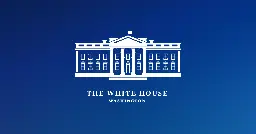US officials: "We realize that efforts, implied or explicit, to shape or change the PRC over several decades did not succeed"
US officials: "We realize that efforts, implied or explicit, to shape or change the PRC over several decades did not succeed"

Council on Foreign RelationsWashington, D.C. MR. SULLIVAN: At least I had the bravery to give that speech at Brookings rather than at CFR. So — (laughter) — Mike, I want to say thank you for having me back at CFR. And to Susan and Kurt and Charlene and Steve, thank you for having me back…

